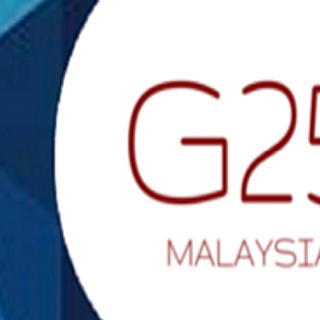G25 Hopes for a Better Future for Malaysia
- G25 Secretariat
- Nov 25, 2022
- 4 min read
We, in G25, warmly congratulate the Right Honourable Dato’ Seri Anwar Ibrahim on his appointment by His Majesty the Yang Di-Pertuan Agong as the 10th Prime Minister of Malaysia. We hope that with this long-awaited appointment it will be the dawn of a new era for Malaysia.
G25 joins all Malaysians in expressing relief that a decision has finally been made to appoint a Prime Minister from the coalition with the most number of seats, consistent with a system of government that subscribes to parliamentary democracy. We wish Dato’ Seri Anwar Ibrahim all the best in forming a government that meets the hopes and aspirations of the rakyat for peace and stability as this is most fundamental for the economy to strengthen and for the people to feel confident about the future of their children and grandchildren.
We, in G25, hope that Dato’ Seri Anwar will form a government that delivers justice to all, that respects the independence of the judiciary, the rule of law and observes good governance; and will establish an administration that upholds integrity, is accountable and transparent. He must introduce the institutional reforms without delay so that parliament and the other institutions can play their respective roles effectively in protecting the people from corruption and scandals that have given Malaysia a bad name internationally. We hope it will be a government that gives priority towards addressing the needs of the poor in the planning and implementation of government expenditure programmes.
All the major political parties have in their election campaigns made a pledge to introduce reforms if they became the government. The time has now come for the politicians in power to deliver on their election manifestos with regards to institutional reforms for a clean and open government with transparency and accountability to ensure checks and balances especially in spending public money and in awarding projects and concessions to contractors and suppliers.
Most high-level corruption in Malaysia is linked to ministry procurements of works, supplies and services from the private sector, local and foreign. Such procurements must strictly comply with the procedures and processes laid down in Federal Treasury circulars and instructions under the Financial Procedure Act 1957.
Past cases have shown that prime ministers and cabinet ministers may be tempted to deviate from the prescribed standard practices in order to oblige their political friends or their relatives and families with a view to having a share in the profits or with the intention of receiving corruption money for their political fundings or for their own pockets. Thus, parliament needs to be empowered financially and administratively so that it could have effective oversight on the ministers and their ministries.
We therefore hope the next parliament will have stronger teeth to bite, like the legislatures in advanced countries where parliament plays a meaningful and effective role.
Parliament alone is not enough to keep the government clean and transparent. The enforcement agencies must be courageous and independent so that they can act quickly to investigate and prosecute without fear or favour and without waiting for instructions from the top. We call upon the new government to introduce institutional reforms on the AG Chambers, the MACC, the Elections Commission, and the police force; as have long been advocated by civil society organisations including G25. We hope the bill on political financing will be presented to the new parliament as soon as possible as all the details have been discussed prior to the dissolution of parliament in October.
G25 wishes to remind the new government that whilst we fully support the election manifesto promises on programmes to help the poor and the needy, the budgetary cost is going to be high. The government should adopt a fiscal policy that is realistic; and if it requires unpopular decisions to be made such as cutting wasteful subsidies and strengthening the tax system, the government should face the reality in a responsible manner. Failure to address the fiscal balance wisely, especially when the debt burden has risen to much higher levels than before, can result in serious consequences for the whole economy. A failed economy will hit the poor more badly than the higher income groups, and will make people go rioting onto the streets, like what happened to Sri Lanka recently.
Malaysians hope that the new government will adopt a multiracial approach in implementing its policies and development programmes without using race and religion to divide the people. All poor and deserving Malaysians should have equal access to government assistance especially in education and welfare programmes and in applying for government jobs. There must be no discrimination. The main beneficiaries will be Malays and other Bumiputeras as they form the majority in the population.
Contracts and procurements must be open to healthy competition so that the government can get value for money in the procurements of assets, works and services. There must be genuine competitive bidding clean from bid rigging, bribery and corruption. This will save the country from unnecessary high costs, wastage and leakages. This will also save the country from favouritism and nepotism associated with the racial preference under the New Economic Policy (NEP). The Malays are now ready to face healthy competition after fifty years of implementing the NEP. The policy should focus on helping the poor.
Let us hope that with the Pakatan Harapan now in government, it will take a courageous approach in making Malaysia a truly dynamic country that it can stand tall in the region as well as in the global economy.



Comments